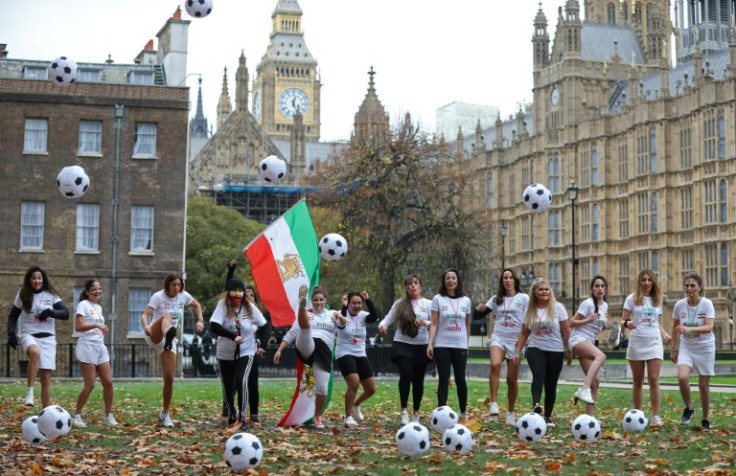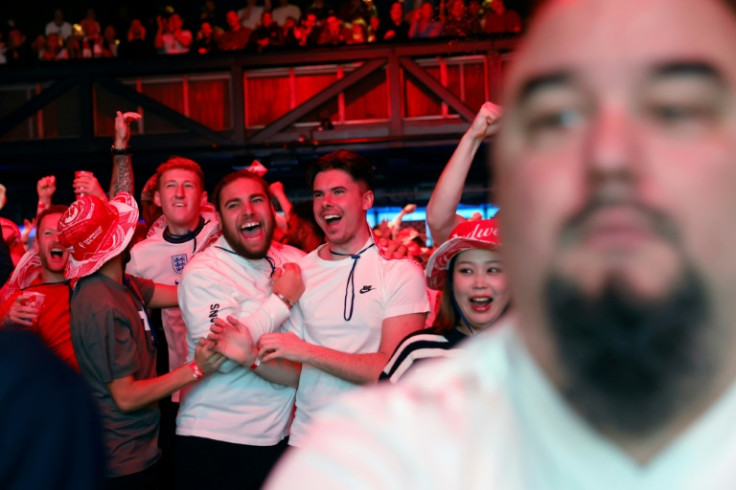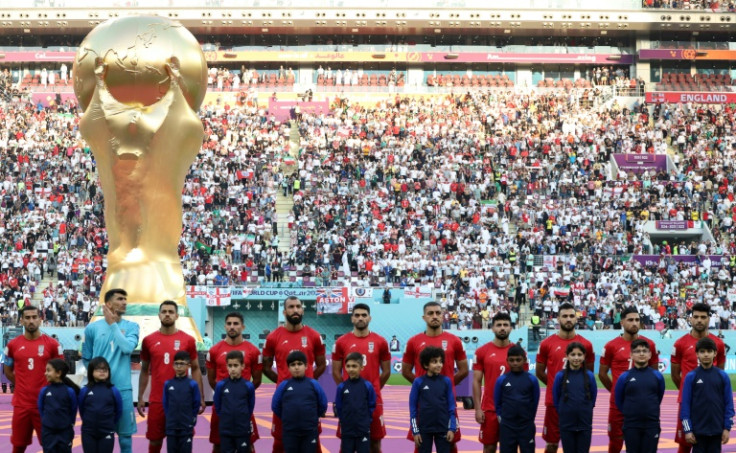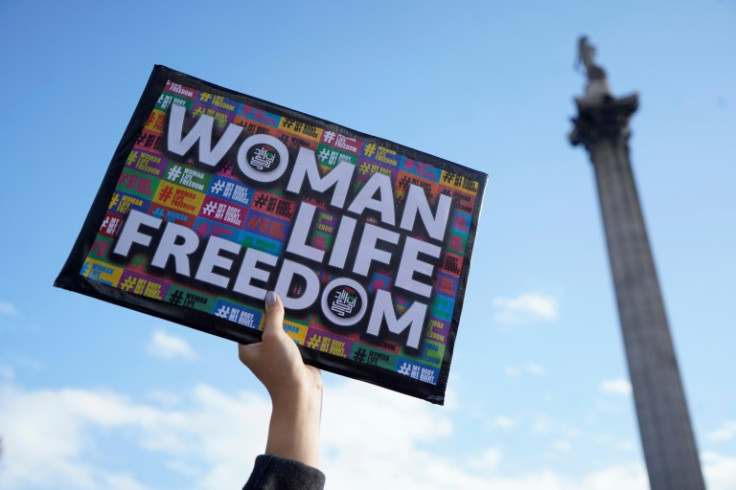UK-Iranian women torn over World Cup support
Although highly critical of the rulers in Tehran, they still proudly projected their Iranian heritage.

As England took on Iran in the World Cup on Monday, a group of British-Iranians were conflicted over who to support, given a crackdown on protests at home.
At a west London pub, a group of UK-Iranian women -- many of them activists who have been demonstrating in London against the regime in Tehran -- gathered to watch the game.
They used it as an opportunity for another protest, turning their backs on the TV screen showing the match and blasting out deafening whistles as the Iranian national anthem played.

Similar stunts are planned during Iran's other World Cup games in Qatar.
"It's very conflicting," sound artist Fari Bradley, an Iran-born British citizen living in the UK since the late 1970s, told AFP.
She wore an "Iran" T-shirt but with "women, life, freedom" printed on it.
"We should not be supporting the team because the regime will use that," she said.
"The money (from the team's success) goes back to the regime, and the regime will undoubtedly use the footage as propaganda for themselves."
Iran has been rocked by over two months of protests sparked by the death of Mahsa Amini, a 22-year-old Kurdish-Iranian woman after her arrest for allegedly not wearing a headscarf.
Iran, a football-obsessed nation of about 83 million people, is normally united by the sport. But the demonstrations have caused shockwaves at home and in the diaspora.
In London, as each goal went in during Iran's 6-2 mauling by England, the group of around two dozen women chanted out Amini's name.
Although highly critical of the rulers in Tehran, they still proudly projected their Iranian heritage.

The women, with the national colours painted on their cheeks, waved the national flag alongside black balloons bearing Amini's name.
Iran's two goals were cheered by some, but so too were England's six.
Last Saturday, many of the same women demonstrated opposite the Houses of Parliament to raise awareness of the alleged regime abuses taking place inside Iran.
On Monday, they sipped rose wine and ate pub food but unlike at previous tournaments struggled to get behind their ancestral homeland.
"Normally I'd be watching and encouraging them and being at the edge of my seat, but this is a whole new ballgame," said Ghazel Jahanbin, 51, who has lived in Britain for 24 years.
Her grandfather, Mehdi Mashayekhi, was mayor of Tehran in the 1940s, she added.
"There's a part of me, of course, inside that wants to cheer because it's our homeland. That's where we're from.
"But to sit here and cheer for a team which represents a country which is committing atrocities and shedding blood and not having any remorse and making money from it, it's not something that we stand for."

Many Iranian activists within and outside the country want a strong political stance from the team.
They recalled how players wore green wristbands in 2009 in support of the so-called Green Movement that erupted after disputed elections.
Some players, such as experienced defender Ehsan Hajsafi, have spoken out subtly, noting the players "sympathise" with the situation.
Meanwhile, the players appeared to choose not to sing their national anthem as the England game got underway, drawing appreciation from the women watching in London.
"The fact that they didn't sing the Islamic Republic's national anthem, it shows a big sign of unity and I am truly proud of them," said UK-based activist and actress Elaaheh Jamali.
But Jamali, 35, sporting dyed green hair, added the players' reticence to speak out more stridently, alongside the ongoing regime atrocities, has left her and others "disappointed" and unable to support them wholeheartedly.
"They're being pulled in all directions and they're playing in an environment where it's actually hostile for them, so I feel sorry for them," she said.
"But (for me) to just stand here and cheer with all my heart this year, I certainly can't do that."
© Copyright AFP 2025. All rights reserved.





















